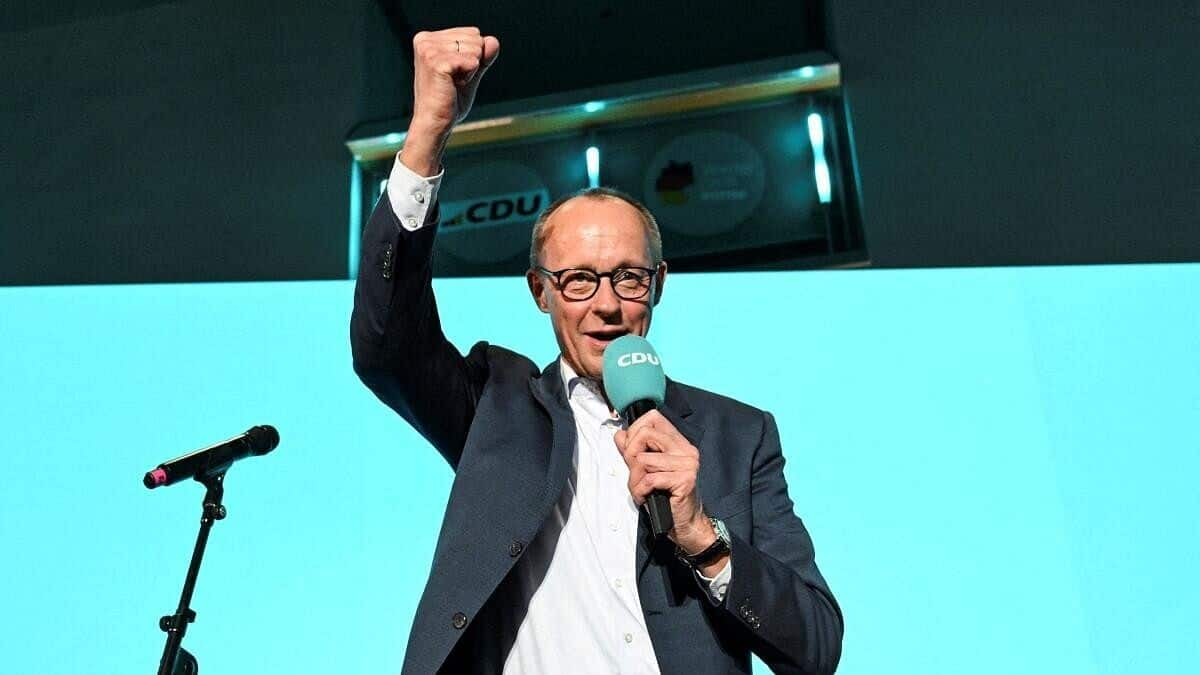
Germany elections: What's next for winner Friedrich Merz
What's the story
Friedrich Merz, the leader of the Christian Democratic Union/Christian Social Union (CDU/CSU) bloc, has emerged victorious in the national elections in Germany.
The CDU/CSU won 28.8% of the vote, estimates from public broadcaster ARD showed. The victory marks a major shift in Germany's political landscape.
The far-right Alternative for Germany (AfD) also witnessed a surge in support, winning 20.2% votes—almost double its previous election performance.
Election aftermath
SPD suffers historic loss, Scholz concedes defeat
Chancellor Olaf Scholz's Social Democrats (SPD) came third with 16.2% of the vote, their worst performance since World War II.
Scholz conceded defeat and took responsibility for the loss, calling the outcome "bitter."
The election was held seven months ahead of schedule after Scholz's coalition government collapsed in November last year.
Coalition talks
Merz faces challenge of forming new government
Merz now has to form a governing coalition. His most likely partners are either the SPD or the Greens, or both in a three-party coalition.
"The world out there won't wait for us," Merz said, emphasizing the need for swift action in establishing a new government.
The final composition of parliament will determine if one or two partners are needed to secure a majority.
Political dynamics
AfD expresses interest in coalition, Merz rules out alliance
AfD leader Alice Weidel celebrated her party's historic result and expressed interest in forming a coalition with the CDU/CSU. However, Merz has ruled out such an alliance.
Weidel warned that if CDU continues to refuse cooperation, AfD could surpass them in future elections.
The election was influenced by key issues such as economic stagnation and immigration policies, with Merz advocating for stricter immigration controls during his campaign.
Election context
High voter turnout amid national and international challenges
The election witnessed a record voter turnout of 84%, the highest since German reunification 35 years ago.
As coalition talks commence, Merz hopes to win back the voters' confidence by efficiently tackling pressing national and international challenges.
These include economic stagnation, immigration policies, geopolitical uncertainties with Ukraine, and the possibility of trade tensions with a new US administration under President Donald Trump.